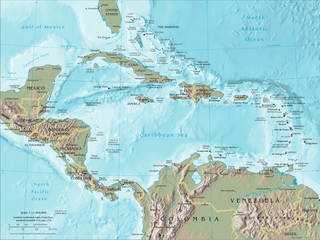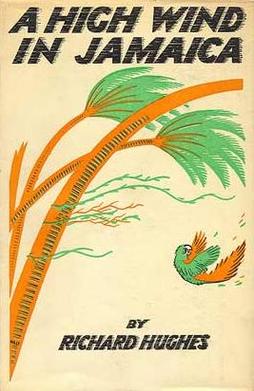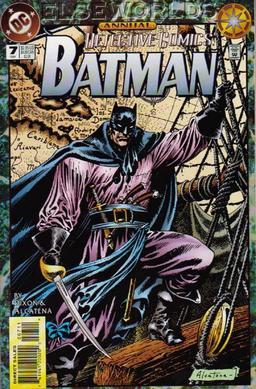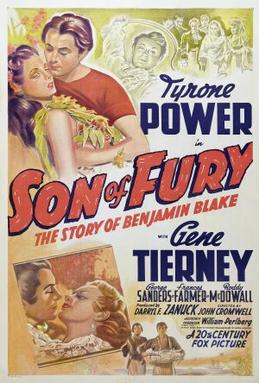
William Kidd also known as Captain William Kidd or simply Captain Kidd, was a Scottish privateer. Conflicting accounts exist regarding his early life, but he was likely born in Dundee and later settled in New York City. By 1690, Kidd had become a highly successful privateer, commissioned to protect English interests in North America and the West Indies.

Buccaneers were a kind of privateer or free sailors particular to the Caribbean Sea during the 17th and 18th centuries. First established on northern Hispaniola as early as 1625, their heyday was from the Restoration in 1660 until about 1688, during a time when governments in the Caribbean area were not strong enough to suppress them.

Sir Henry Morgan born Harri Morgan was a Welsh privateer, plantation owner, and, later, Lieutenant Governor of Jamaica. From his base in Port Royal, Jamaica, he raided settlements and shipping on the Spanish Main, becoming wealthy as he did so. With the prize money from the raids, he purchased three large sugar plantations on the island.

James Harrison Coburn III was an American film and television actor who was featured in more than 70 films, largely action roles, and made 100 television appearances during a 45-year career.

The era of piracy in the Caribbean began in the 1500s and phased out in the 1830s after the navies of the nations of Western Europe and North America with colonies in the Caribbean began combating pirates. The period during which pirates were most successful was from the 1660s to the 1730s. Piracy flourished in the Caribbean because of the existence of pirate seaports such as Port Royal in Jamaica, Tortuga in Haiti, and Nassau in the Bahamas. Piracy in the Caribbean was part of a larger historical phenomenon of piracy, as it existed close to major trade and exploration routes in almost all the five oceans.

Captain Pugwash is a fictional pirate who appears in a series of British children’s comic strips, books and television shows created by John Ryan.

A High Wind in Jamaica is a 1929 novel by the Welsh writer Richard Hughes, which was made into a film of the same name in 1965. Hughes' first novel, it was set in the late nineteenth century and followed a group of children captured by pirates on a voyage from Jamaica. A critical success as well as a bestseller on its first publication in Britain, it was awarded the Prix Femina Vie-Heureuse in 1932.

Stede Bonnet was a Barbadian-born pirate and military officer, known as the Gentleman Pirate for the reason that he was a moderately wealthy landowner before turning to a life of crime. Bonnet was born into a wealthy English family on the island of Barbados, and inherited the family estate after his father's death in 1694. Despite his lack of sailing experience, Bonnet decided he should turn to piracy in the spring of 1717. He bought a sailing vessel, the Revenge, and travelled with his paid crew along the Eastern Seaboard of what is now the United States, capturing other vessels and burning other Barbadian ships.

Redbeard is a series of Belgian comic books, originally published in French, created by writer Jean-Michel Charlier and artist Victor Hubinon in 1959. After their deaths the series was continued by other writers and artists, including Jijé, Christian Gaty, Patrice Pellerin, Jean Ollivier, Christian Perrissin and Marc Bourgne, Jean-Charles Kraehn and Stefano Carloni.

Roche Braziliano was a Dutch Brazilian pirate born in the town of Groningen. His pirate career lasted from 1654 until his disappearance around 1671. He was first made famous in Alexandre Exquemelin's 1678 book The Buccaneers of America; Exquemelin did not know Braziliano's real name, but historians have found he was probably born as Gerrit Gerritszoon and that he and his parents moved to Dutch-controlled Brazil. He is known as "Roche Braziliano", which in English translates to "Rock the Brazilian", due to his long exile in Brazil.

The Razor's Edge is a 1946 American drama film based on W. Somerset Maugham's 1944 novel of the same name. It stars Tyrone Power, Gene Tierney, John Payne, Anne Baxter, Clifton Webb, and Herbert Marshall, with a supporting cast including Lucile Watson, Frank Latimore, and Elsa Lanchester. Marshall plays Somerset Maugham. The film was directed by Edmund Goulding.
Adam Baldridge was an English pirate and one of the early founders of the pirate settlements in Madagascar.

In English-speaking popular culture, the modern pirate stereotype owes its attributes mostly to the imagined tradition of the 18th-century Caribbean pirate sailing off the Spanish Main and to such celebrated 20th-century depictions as Captain Hook and his crew in the theatrical and film versions of J. M. Barrie's children's book Peter Pan, Robert Newton's portrayal of Long John Silver in the 1950 film adaptation of the Robert Louis Stevenson novel Treasure Island, and various adaptations of the Middle Eastern pirate, Sinbad the Sailor. In these and countless other books, films, and legends, pirates are portrayed as "swashbucklers" and "plunderers". They are shown on ships, often wearing eyepatches or peg legs, having a parrot perched on their shoulder, speaking in a West Country accent, and saying phrases like "Arr, matey" and "Avast, me hearty". Pirates have retained their image through pirate-themed tourist attractions, film, toys, books and plays.
Henry Jennings was an English privateer-turned-pirate. Jennings' first recorded act of piracy took place in early 1716 when, with three vessels and 150–300 men, Jennings' fleet ambushed the Spanish salvage camp from the 1715 Treasure Fleet. After the Florida raid, Jennings and his crew also linked up with Benjamin Hornigold's "three sets of pirates" from New Providence Island.

Leatherwing, also known as Batman: Leatherwing, is a DC Comics Elseworlds story published in Detective Comics Annual #7 in 1994. It was written by Chuck Dixon and illustrated by Enrique Alcatena, who also devised the plot.
Deborah Baxter is an English actress who appeared in the films A High Wind in Jamaica and The Wind and the Lion.

Son of Fury: The Story of Benjamin Blake is a 1942 American south seas adventure film directed by John Cromwell and starring Tyrone Power. The film was adapted from Edison Marshall's 1941 historical novel Benjamin Blake. It is notable as the last film Frances Farmer appeared in before her legal problems and eventual commitment to psychiatric hospitals until 1950.
Charles Eglerton Hyatt OD was a Jamaican actor, playwright, director, author and broadcaster. Hyatt was best known as a character actor and comedian who appeared in numerous films and television shows, beginning in the 1960s.

The Maersk Alabamahijacking began on 8 April 2009, when four pirates in the Somali Basin seized the Danish/U.S. cargo ship Maersk Alabama at a distance of 240 nautical miles southeast of Eyl, Somalia. The siege ended after a rescue effort by the United States Navy on 12 April.

Pirate Latitudes is an action adventure novel by Michael Crichton, the sixteenth novel to be published under his own name and first to be published after his death, concerning 17th-century piracy in the Caribbean. HarperCollins published the book posthumously on November 26, 2009. The story stars the fictional privateer Captain Charles Hunter who, hired by Jamaica's governor Sir James Almont, plots to raid a Spanish galleon for its treasure.















